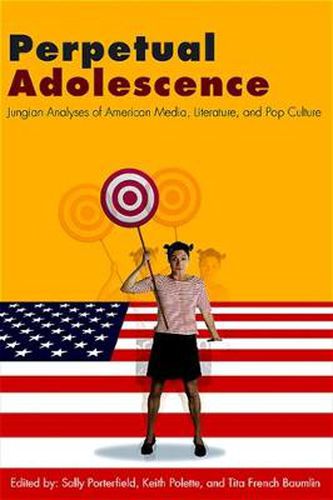Readings Newsletter
Become a Readings Member to make your shopping experience even easier.
Sign in or sign up for free!
You’re not far away from qualifying for FREE standard shipping within Australia
You’ve qualified for FREE standard shipping within Australia
The cart is loading…






Arguing that American culture appeals to and is populated by children and adolescents who merely appear to be adult men and women, the essays in Perpetual Adolescence examine the Jungian archetype of the eternal youth -the puer aeternus-as it is manifested in the arrested development of American culture. From the infantilization of the American psyche and the lionization of teenaged celebrities and bodies, to fanatical conformity, and puerile entertainment, the contributors probe the various ways that American television, music, film, print, Internet, education, and social movements work to nourish and sustain this child archetype. Offering analytic psychology as an instrument of social analysis and critique, they point to the need for dialogue over the causes and effects of our puer-fixations, which have become, in large part, both a creation and a creator of the American zeitgeist.
$9.00 standard shipping within Australia
FREE standard shipping within Australia for orders over $100.00
Express & International shipping calculated at checkout
Arguing that American culture appeals to and is populated by children and adolescents who merely appear to be adult men and women, the essays in Perpetual Adolescence examine the Jungian archetype of the eternal youth -the puer aeternus-as it is manifested in the arrested development of American culture. From the infantilization of the American psyche and the lionization of teenaged celebrities and bodies, to fanatical conformity, and puerile entertainment, the contributors probe the various ways that American television, music, film, print, Internet, education, and social movements work to nourish and sustain this child archetype. Offering analytic psychology as an instrument of social analysis and critique, they point to the need for dialogue over the causes and effects of our puer-fixations, which have become, in large part, both a creation and a creator of the American zeitgeist.